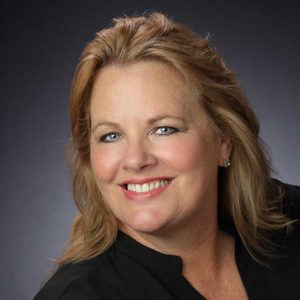When you have the right people counseling you along the way and you take their advice early and often, you’ll create a great experience for yourself and you’ll be prepared for whatever happens.
Five things you need to do first.
Looking to purchase your very first home? Congratulations! It’s an exciting purchase and one that can provide a lot of benefits and advantages.
So, what should you do to be a smart home buyer and be prepared for the largest purchase you’ll ever make? There’s plenty of advice out there, but the purpose of this article is to give you some advice in the plainest possible terms.
Take it for what it’s worth, but honestly, if you take these things to heart you’ll have a smooth mortgage transaction and many more years of happiness ahead — well, I can’t guarantee the happiness part — but a smoother home purchase transaction will definitely happen.
01 Make a budget
Just about everyone hates looking realistically at their financial picture in this way (I get it!), but putting pen to paper about your current expenses is the best way to know what your current financial picture is.
A good loan officer will start the conversation with questions about how much rent you currently pay and how much you are comfortable paying for your total housing expense. The total housing expense includes:
- Your mortgage payment
- Homeowner’s insurance
- Property taxes
There may be a big difference between how much you are comfortable paying for your housing and how much the bank will lend you — which is why making a budget is an important step in the preparation process.
Since we’re talking about a budget, please don’t forget the ongoing monthly expenses that people leave out all the time. Do you belong to a gym? Don’t leave out that expense. The same is true for:
- Babysitting costs
- Hair salon visits
- Dining out, including breakfast burritos and lunch
If it’s something you spend money on every month, be honest about putting it into the overall financial picture, after all this financial exercise is for you.
Lastly, when thinking about what you want to spend on your housing expenses think about what you currently earn and how much you have left over every month. Lenders make calculations on gross income (before taxes), but all of us really live on our net income after all the deductions have been made.
If you’re currently paying $1,500 per month for rent and find you have nothing left over after you pay all your bills, you may want to make some changes before taking on a housing expense that’s larger.
This should really go without saying, but it’s easy to get emotionally wrapped up in the home buying process and end up having a larger mortgage than you wanted. This just makes new home ownership a struggle and not as fun as you thought it was going to be.
02 Ditch the lattes
Is it possible to buy a home with absolutely no money down, no money out of pocket and no reserves? Sure it is — but just because it’s possible doesn’t mean you should do it.
Thinking about a home purchase is also the time to think about what you can cut out. Put that money into the bank now so you’ll have some reserves for things like lawn mowers, plumbers and other things you didn’t need as a renter.
(I just calculated my monthly Starbucks expense at about $63.20 — yours may be higher or lower — but I’m pretty sure you’re spending money every month on something you can do without for a while.)
03 Check your credit
Is your credit frozen? Unfreeze it. Do you have disputed accounts? Resolve the disputes — your lender will require it. The day you want to make an offer on a home is not the time to look at your credit for the first time in years. Knowing your full credit picture well before you ever look at homes puts you at an advantage when it comes to your home purchase.
Can you buy a home with bad credit? Yes, but credit costs less and interest rates are better when you have a good credit score. So, by all means make your loan officer a partner in the process and take their advice on how to improve or maintain your credit score months before you buy a home.
Speaking of credit, the middle of a home purchase (or right before) is definitely not the time to make other major purchases! Yes, I actually have to say this because it happens all the time.
You should know right upfront that one of the last things a lender does before they fund your loan is re-check your credit to be sure you haven’t applied for other debt during the process. So put off buying the new car until after your home purchase closes, because any additional debt could derail your loan.
04 Think about the money
Where is your down payment coming from? How will you cover the closing costs associated with a home purchase? There is a lot of flexibility here, including having the loan cover the costs or having a seller cover the costs.
Let’s talk about documentation in general. Lenders absolutely hate large cash deposits, and all large deposits have to be explained during the loan process. Therefore it’s important to be honest with your loan officer about where your money is and what your plans are, so you can effectively make plans for what documentation is needed for your funds.
You can use any of these types of funds for a down payment or closing costs:
- Savings
- Inheritance
- Gift funds
- Sales of cars and other property
- Loans from your employee retirement plan
If you have cash set aside, you’ll need to plan to put money into the bank and “season” it for several months prior to your home purchase if you expect to be able to use those funds toward the purchase. If you plan to sell something, talk to your loan officer beforehand for advice on how to document the sale.
05 Do your research
I’m sure it seems as though you have enough to do at this point, but there’s another important thing to know: Not all real estate agents and lenders are equally professional, knowledgeable and responsible.
You should research and shop for a real estate agent as thoroughly as you would do anything else. Meet several agents and get recommendations from friends and family who have had good experiences. Look up licensing to verify they do not have a history of compaints and disciplinary actions.
As a home buyer, you do not pay a fee to be represented by your own real estate agent in the transaction and I highly recommend that you find an agent you are comfortable with and who respects your budget and your objectives.
When it comes to choosing your lender, the same things apply. I think I’ve already mentioned how much an excellent loan officer can help you in the home buying process, so it’s important you feel comfortable with the person you are working with.
Many points of first contact in this industry are simply “application takers” and not particularly knowledgeable about the subtleties of the loan process. So, be sure to start with a licensed loan broker or originator and be sure to check out their licensing status.
Choose wisely and early
Real estate and mortgage finance are extremely complex topics and can easily fill volumes, but if there’s one takeaway from this article it’s this:
Choose an excellent loan officer and make them your partner in the process long before you start looking at Zillow or any of the other countless home buying websites. When you have the right people counseling you along the way and you take their advice early and often, you’ll create a great experience for yourself and you’ll be prepared for whatever happens.
And that’s good advice whether you’re buying your first home or your tenth.

